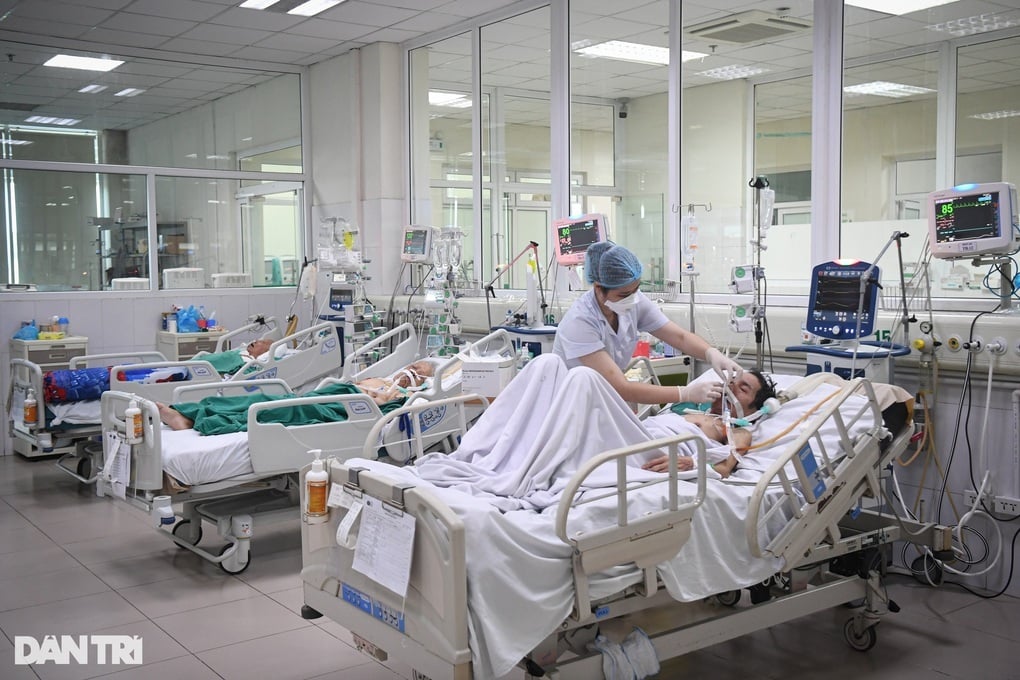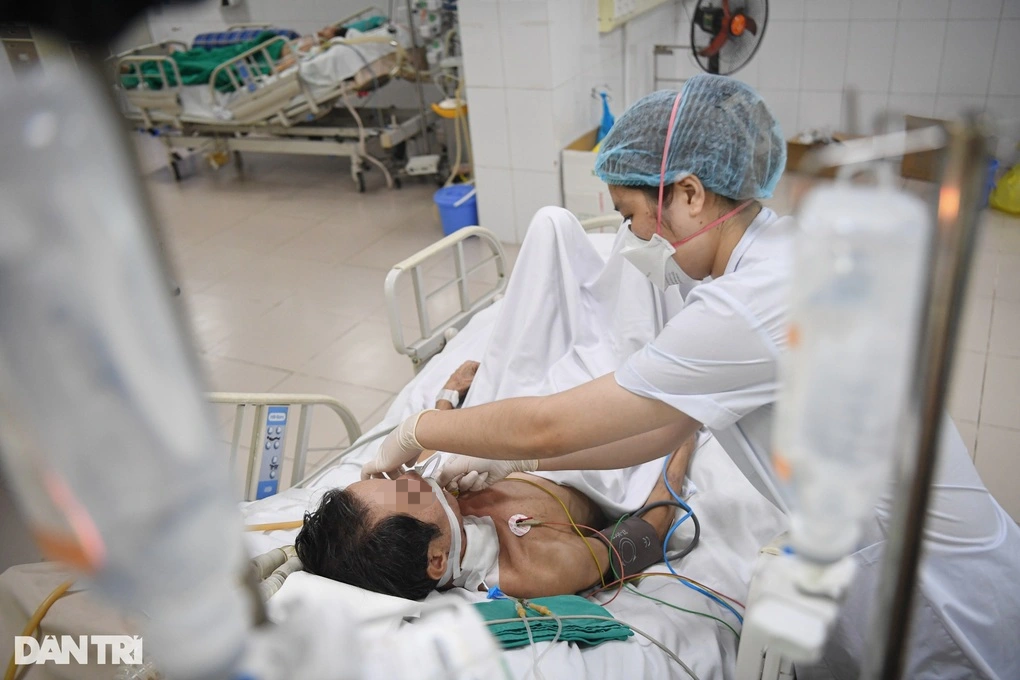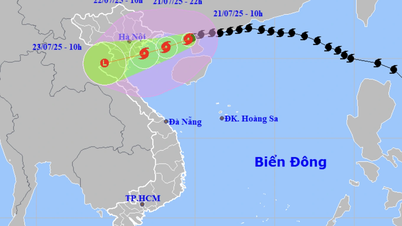One day after the first symptoms appeared, Ms. M. faced chest tightness and difficulty breathing.
By the time she was admitted to the Central Hospital for Tropical Diseases, even though it was only the third day of her illness, Ms. M. had respiratory failure and needed oxygen. Two days after admission, her respiratory failure worsened so much that doctors had to place her on a ventilator.

Severe influenza A patients have increased rapidly in the past month (Illustration: Manh Quan).
According to Master, Doctor Pham Van Phuc, Deputy Head of the Intensive Care Department, Central Hospital for Tropical Diseases, Ms. M. had underlying diseases such as obesity, diabetes and high blood pressure. Therefore, when she got influenza A, it progressed very quickly, especially in the lungs.
"At present, the patient's lung condition is still very poor, requiring complete dependence on a ventilator. In addition, the patient is also in septic shock and must maintain vasopressor medication to ensure blood pressure," said Dr. Phuc.
Similar to Ms. M., after only 4 days of symptoms appearing, Mr. A. had to be put on a ventilator because his respiratory failure was getting worse.

Treating patients at the Intensive Care Unit (Photo: Manh Quan).
Through medical history investigation, Mr. A. has many underlying diseases such as chronic kidney failure, high blood pressure, diabetes, and complications of cerebrovascular accident.
The patient had "white lung" on X-ray, 50-60% lung damage and bilateral diffuse damage.
"Lung damage is the patient's most serious condition at the moment. In addition to mechanical ventilation, we also have to continuously filter the patient's blood. In addition to controlling the patient's acid-base balance, this also helps filter out cytokines, which are the agents that lead to typical damage," Dr. Phuc analyzed.
After more than 10 days of intensive treatment, the patient's respiratory functions were supported by a ventilator and temporarily stabilized, but the prognosis was still very severe and required long-term treatment.
Over the past month, the number of influenza A cases admitted to the Central Hospital for Tropical Diseases has increased rapidly. This facility is currently treating more than 15 severe influenza A patients, of whom 8 have underlying medical conditions.
At the Intensive Care Unit of the Central Hospital for Tropical Diseases, Kim Chung facility, 3 out of 4 severe cases of influenza A required ventilators. Notably, these cases all had underlying diseases.
According to Dr. Phuc, two groups at high risk of severe illness when infected with influenza A are children and the elderly with underlying diseases.
Dr. Phuc explained: "People with underlying diseases directly related to breathing are cardiovascular (high blood pressure, coronary artery disease...) and pulmonary (bronchitis, chronic obstructive pulmonary disease...).
Therefore, the underlying disease is one of the main reasons why the influenza A patients we are treating become seriously ill very quickly."
According to this expert, influenza A has just entered the season, partly due to the late cold weather this year. Therefore, people absolutely must not be subjective, especially the high-risk groups mentioned.
Getting a flu vaccine every year, avoiding crowded places, and maintaining hygiene are effective measures to protect your health in the face of the increasingly "heating up" flu A situation.
Source




























![[Photo] National Assembly Chairman Tran Thanh Man visits Vietnamese Heroic Mother Ta Thi Tran](https://vphoto.vietnam.vn/thumb/1200x675/vietnam/resource/IMAGE/2025/7/20/765c0bd057dd44ad83ab89fe0255b783)





































































Comment (0)